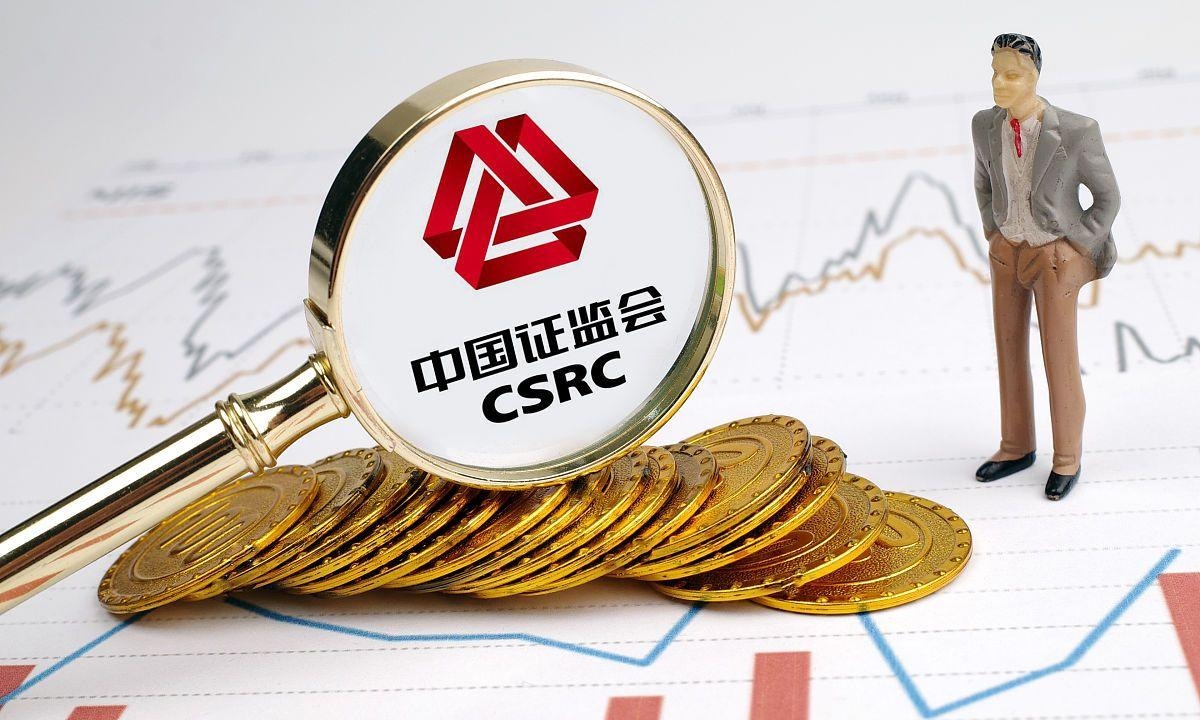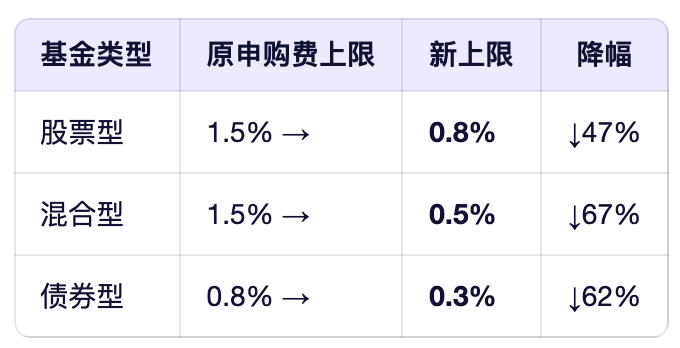
The "hidden cost" of fund investment is finally going to be "knife"!
On September 5, the China Securities Regulatory Commission revised the original "Regulations on the Management of Sales Expenses of Open-end Securities Investment Funds" and changed its name to the "Regulations on the Management of Sales Expenses of Publicly Offered Securities Investment Funds" (hereinafter referred to as the "Regulations"), which is now soliciting opinions from the whole society.
The core of this reform is two words: fee reduction.
How to reduce specifically? reduce the subscription fee and subscription fee of the fund; Reduce sales service fees. It is estimated that this round of reform can save investors about 30 billion yuan every year!
Not only that, but the Regulations have also made several thoughtful adjustments. Encourage long-term investment: the longer you hold it, the lower the redemption fee and may even be waived; All redemption fees belong to the fund: in the future, the fees paid by the fund will not be taken away by the channel, and all will be returned to the fund assets to protect the interests of holders; Differentiation of trailing commissions: Set different commission payment limits for different types of funds (especially equity funds), and guide sales institutions to pay more attention to equity products with good long-term performance, rather than only promoting funds with "high commissions".
To put it simply, this reform is to make fund sales more transparent and fair, charge less money, think more about investors, and encourage everyone to hold for a long time and not buy and sell frequently. For ordinary investors, this is real good news.
The China Securities Regulatory Commission has taken action, and buying funds will be cheaper and more transparent
To put it simply, this reform is to reduce fees, encourage long-term holding, and promote the development of equity funds, so that investors can truly benefit. There are a total of 28 new regulations, and the core content can be summarized into "six things" and "four highlights".
Six major changes make buying funds more worry-free and cost-saving:
1. The handling fee for buying funds is lower. Subscription fees, subscription fees, and sales service fees have been comprehensively reduced, which is expected to save investors about 30 billion yuan per year!
2. All redemption fees belong to the fund. In the past, when you redeemed a fund, part of the handling fee went to the fund and part of it went to the sales platform. Now all of them are returned to the fund to prevent the platform from "only selling and not holding".
3. It is more cost-effective to hold it for a long time. If you hold an equity, hybrid or bond fund for more than a year, there is no longer a sales service fee, encouraging you to "hold on".
4. Encourage more buying of equity funds (such as stock funds). Set up "differential treatment" for the commission of sales agencies: sell stock funds to give higher shares, and sell bonds or money funds to reduce shares, guiding everyone to promote more products with higher long-term returns.
5. Standardize the ownership of expenses and solve the problem of "arbitrary charges". Clarify who belongs to the interest of fund sales and settlement funds, and fund investment advisors cannot "double charge", so as to avoid investors being "secretly slaughtered".
6. Create a "highway" for direct fund sales. Launched an industry-level direct sales system called the FISP platform, allowing fund companies to directly serve institutional customers more efficiently and safely, reduce operating costs and improve service efficiency.
The four "highlights" are all practical moves:
First, the fee reduction is large, which really benefits investors. This fee reduction is strong, wide-ranging, and practical.

At the same time, the reform lowered the upper limit of sales service rates for equity funds and hybrid funds from 0.6%/year to 0.4%/year; The upper limit of sales service rates for index funds and bond funds will be reduced from 0.4%/year to 0.2%/year; The upper limit of the sales service rate of money market funds will be reduced from 0.25%/year to 0.15%/year. Based on the average data of the past three years, the reform of fund sales expenses will reduce the overall fee by about 30 billion yuan, a decrease of about 34%.
The second is to restrain short-term behavior and optimize the system arrangement of redemption fees.
On the one hand, the "Regulations" optimize the current institutional arrangement of "redemption fees are partly owned by fund assets and partly owned by fund sales agencies" to "all redemption fees are owned by fund property", and guide fund sales institutions to change from earning "flow" income to earning "retention" income by providing continuous services.
On the other hand, the redemption fee collection standard is unified, making it clear that all types of funds and their shares are charged redemption fees according to the same standard, except for exchange-traded open-ended index funds (ETFs), interbank certificate of deposit funds, money market funds and other funds recognized by the China Securities Regulatory Commission, encouraging investors to hold for a long time.
Third, the regulatory orientation is clear, focusing on the development of individual customer service and equity funds.
The Regulations reduce the proportion of customer maintenance fees to management fees, which does not involve substantive concessions to investors, but has a greater impact on the sales behavior of fund sales agencies.
On the one hand, for the holding of funds formed by the sale to individual investors, continue to maintain the upper limit of customer maintenance fees to management fees of no more than 50%, and encourage fund sales institutions to continue to provide services to individual investors.
On the other hand, the Provisions distinguish between equity funds and non-equity funds, continue to maintain the upper limit of customer maintenance fees to management fees of no more than 30% for the sale of equity funds to institutional investors, and reduce the upper limit of the proportion of customer maintenance fees to management fees from 30% to 15% for the sales of bond funds and money funds to institutional investors, and encourage fund sales institutions to vigorously develop equity funds.
Fourth, build an industry platform and develop and expand direct sales channels.
The China Securities Regulatory Commission recently agreed to the official launch of the public fund industry institutional investor direct sales service platform (hereinafter referred to as the "FISP platform"). The platform is an industry service platform authorized by the China Securities Regulatory Commission to build and operate China Clearing, and fund managers and fund custodians should access the FISP platform and use the FISP platform to carry out fund direct sales business.
By formulating unified business standards, docking multiple entities, and bringing together industry direct selling forces, the FISP platform will provide centralized, standardized and automated "one-stop" full-process data and information interaction services for all kinds of institutional investors to invest in public funds, effectively solve the problems of high operating costs, low efficiency and high risks of traditional direct selling business in the public fund industry, improve the service level of industry direct selling business, and better support the entry of various medium and long-term funds into the market.
This fund fee reduction reform is not a "minor repair", but a systematic optimization: cost reduction, anti-short-term, long-term promotion, support rights and interests, and strong direct sales.
Truly put the interests of investors first
In the past, many sales platforms (such as banks and third-party platforms) only focused on "how much they sold", pursued scale and short-term fee income, and even encouraged investors to buy and sell funds frequently - such as "redeeming old funds and buying new funds", just to earn more commissions. This "heavy sales and light service" approach has harmed investors' returns in the long run.
The new regulations are to reverse this trend and promote the entire industry from "fighting for scale" to "fighting for returns", so that all parties can truly serve the long-term interests of investors. How exactly is it done?
1. Comprehensive fee reduction, so that investors can spend less money. Subscription fees, subscription fees, redemption fees, and sales service fees are all lowered, directly reducing the cost of buying funds.
2. Plug the loophole of "making quick money". In the past, the sales platform could share part of the redemption fee, so some would encourage you to "fast in and out". Now the new regulations are clear: all redemption fees belong to the fund, and the platform cannot take a penny. Now, the platform has no incentive to fool you into frequent transactions.
3. Encourage "long-term holding", and the more you take, the more you save money. If you hold an equity, hybrid or bond fund for more than one year, you will no longer be charged a sales service fee. It is equivalent to long-term investors who can save a "management tip" every year.
4. Increase short-term speculation costs. By unifying and optimizing the redemption fee rules, the cost of buying and selling funds in the short term has become higher, which is equivalent to reminding you: don't keep tossing, it is more cost-effective to hold it steady.
This reform is to allow sales agencies to shift from "making money by selling funds" to "making money by serving customers well", completely bid farewell to routines such as "redeeming the old and buying new", and truly establish a fund ecology centered on investor returns.
|Fund fee reduction trilogy, saving 50 billion yuan per year
In July 2023, the China Securities Regulatory Commission launched the "big price reduction" plan for the fund industry, with a clear goal: to reduce the comprehensive cost of fund investment step by step, so that investors can truly save money. The entire reform is divided into three steps, and now it has basically landed:
In the first stage, the management fee and custody fee rate of active equity public fund products were mainly reduced from 1.5% and 0.25% to less than 1.2% and 0.2%, making about 14 billion yuan of profits for investors every year.
In the second stage, the commission rate of fund stock trading will be mainly reduced, and the upper limit of the distribution ratio of securities trading commission by fund managers will be reduced, and the transaction commission rate of passive equity fund products shall not exceed 0.26‰, and other types shall not exceed 0.52‰, making about 6.8 billion yuan of profits for investors every year.
In the third stage, the main reduction of sales links such as subscription fees will be reduced, and the annual profit for investors will be about 30 billion yuan.
The three steps add up to save investors more than 50 billion yuan every year! Not only did it exceed the target, but it also really reduced everyone's investment costs.
This reform is not a "small fight", but a systematic reshaping of the industry ecology - from "fighting for scale and sales" to "fighting for service and long-term returns", and promoting the entire fund industry to become more transparent, professional and competitive.





